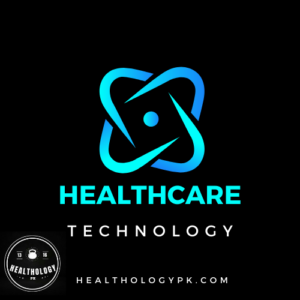5 Healthcare Systems

healthcare
Introduction
In today’s rapidly evolving world, healthcare systems play a critical role in ensuring the well-being of individuals and communities. From access to medical services to the quality of care provided, systems aim to address the diverse needs of patients while striving for optimal outcomes. This article explores the essential components of health systems and their impact on delivering quality care to individuals worldwide.
-
The Importance of Healthcare Systems
Healthcare systems serve as the backbone of any society, promoting health and well-being. They aim to provide accessible, affordable, and high-quality care to individuals and populations. By integrating various components, healthcare systems ensure that individuals can access the care they need and receive appropriate treatment.
- Key Components of Systems
2.1 Infrastructure and Facilities
An effective system requires robust infrastructure and facilities, including hospitals, clinics, laboratories, and rehabilitation centers. These physical resources provide the necessary space and equipment for healthcare professionals to deliver comprehensive care.
2.2 Professionals
professionals, such as doctors, nurses, pharmacists, and allied health personnel, form the core of any system. Their expertise and skills are essential in diagnosing, treating, and managing various health conditions.
2.3 Medical Equipment and Technology
Medical equipment and technology play a crucial role in modern systems. From diagnostic tools to advanced surgical equipment, these technological advancements enhance the accuracy and efficiency of medical interventions.
2.4 Financing
A sustainable healthcare system requires adequate financing mechanisms to support its operations. This includes funding from governments, private insurance, and individuals. Proper financing ensures that healthcare services are accessible and affordable for all g e healthcare.
2.5 Health Information Systems
Health information systems facilitate the collection, storage, and exchange of patient data. Electronic health records and health information exchanges improve care coordination, reduce medical errors, and enable evidence-based decision-making.

2.6 Pharmaceutical and Medical Supply Chains
Efficient pharmaceutical and medical supply chains are crucial for ensuring the availability and accessibility of essential medications and supplies. These systems manage the procurement, distribution, and storage of pharmaceutical products.
2.7 Policies and Regulations
Clear policies and regulations govern healthcare systems, ensuring patient safety, privacy, and quality of care. These guidelines shape the practice of healthcare professionals and promote standardization across the system.
2.8 Health Education and Promotion
Health education and promotion initiatives aim to empower individuals and communities to make informed decisions regarding their health. These programs raise awareness about preventive measures, healthy lifestyles, and disease management.
2.9 Research and Innovation
Research and innovation drive advancements in healthcare systems. By investing in research, healthcare systems can develop new treatments, improve care delivery, and enhance overall health outcomes.
- Challenges in Systems
While healthcare systems strive to provide quality care, they face several challenges that impact their effectiveness. Understanding and addressing these challenges is crucial for sustainable improvements in healthcare delivery.
3.1 Access
Access to healthcare is a significant challenge, particularly in underserved areas and vulnerable populations. Barriers like geographical distance, lack of transportation, and financial constraints hinder individuals from seeking timely medical care.
3.2 Cost
The rising cost of healthcare poses a burden on individuals, governments, and healthcare systems. Balancing affordability with quality care is a constant challenge that requires innovative financing models and cost containment strategies.
3.3 Disparities
Health disparities, resulting from social, economic, and environmental factors, contribute to inequities in healthcare access and outcomes. Addressing these disparities is crucial to ensure equal opportunities for optimal health.
3.4 Aging Population
An aging population presents unique challenges for healthcare systems. The increasing prevalence of chronic diseases and age-related conditions requires specialized care and support services to meet the unique needs of older adults.
3.5 Chronic Disease Management
The burden of chronic diseases, such as diabetes, cardiovascular conditions, and respiratory disorders, continues to rise. Healthcare systems must prioritize preventive care, early detection, and effective management of these conditions.
3.6 Technological Advancements
While technology offers numerous benefits to healthcare systems, its rapid evolution poses challenges in terms of implementation, interoperability, and data security. Adapting to technological advancements requires careful planning and training.
3.7 Ethical Considerations
Healthcare systems must navigate complex ethical considerations, such as end-of-life care, organ transplantation, and genetic testing. Balancing patient autonomy, beneficence, and justice is essential for ethical decision-making.
3.8 Workforce Shortages
Shortages of healthcare professionals, particularly in rural and remote areas, pose significant challenges for healthcare systems. Addressing workforce shortages requires recruitment and retention strategies, as well as expanding educational opportunities.
3.9 System Sustainability
The sustainability of healthcare systems is a pressing concern. Balancing population health needs, financial resources, and environmental impact is vital for ensuring the long-term viability of healthcare systems.

- Enhancing Systems
To overcome the challenges and deliver high-quality care, healthcare systems can implement various strategies and reforms. The following are key areas for enhancing healthcare systems:
4.1 Universal Coverage
Implementing universal health coverage ensures that
4.2 Primary
Strengthening primary healthcare services is crucial for promoting early intervention, disease prevention, and comprehensive healthcare delivery. By focusing on primary care, healthcare systems can improve population health outcomes and reduce the burden on specialized care.
4.3 Telemedicine and Digital
Leveraging telemedicine and digital health technologies can enhance access to healthcare, especially in remote or underserved areas. These technologies enable virtual consultations, remote monitoring, and electronic health records, improving convenience and efficiency.
4.4 Interprofessional Collaboration
Promoting collaboration among healthcare professionals from different disciplines fosters holistic and coordinated care. Interprofessional teams facilitate comprehensive assessments, care planning, and shared decision-making, leading to improved patient outcomes.
4.5 Patient-Centered Care
Emphasizing patient-centered care ensures that healthcare systems focus on individual needs, preferences, and values. By involving patients in their care decisions and considering their perspectives, healthcare systems can enhance patient satisfaction and engagement.
4.6 Health Policy Reforms
Regular evaluation and updating of health policies are essential for keeping healthcare systems responsive to evolving healthcare needs. Policy reforms should address gaps, promote evidence-based practices, and align with current health priorities.
4.7 Continuous Quality Improvement
Implementing quality improvement initiatives, such as regular audits, feedback mechanisms, and performance evaluations, fosters a culture of continuous learning and improvement. Healthcare systems can identify areas for enhancement and implement evidence-based practices.
4.8 Addressing Social Determinants of Health
Recognizing the impact of social determinants of health systems can collaborate with community organizations and social services to address underlying factors affecting health outcomes. By addressing social determinants, systems can work towards health equity.
4.9 Embracing Innovation
Embracing innovation and adopting new technologies, treatments, and care models allows systems to stay at the forefront of healthcare delivery. Investing in research and innovation fosters advancements in diagnosis, treatment, and patient care.
5. Conclusion
Healthcare systems are complex and multifaceted, aiming to provide quality care to individuals and communities. By addressing challenges, enhancing key components, and embracing innovative approaches, systems can continually improve their ability to meet the evolving needs of populations worldwide.
TAKE CARE OF YOURSELF
BE HAPPY-STAY SAFE
Do Follow our Instagram page : https://www.instagram.com/healthology_pk/
See our more articles related to health :
https://healthologypk.com/exercise-and-fitness-5-points-healthy-lifestyle/
https://healthologypk.com/smoking-cessation/
https://healthologypk.com/5-healthcare-systems/



Thank you for your sharing. I am worried that I lack creative ideas. It is your article that makes me full of hope. Thank you. But, I have a question, can you help me?